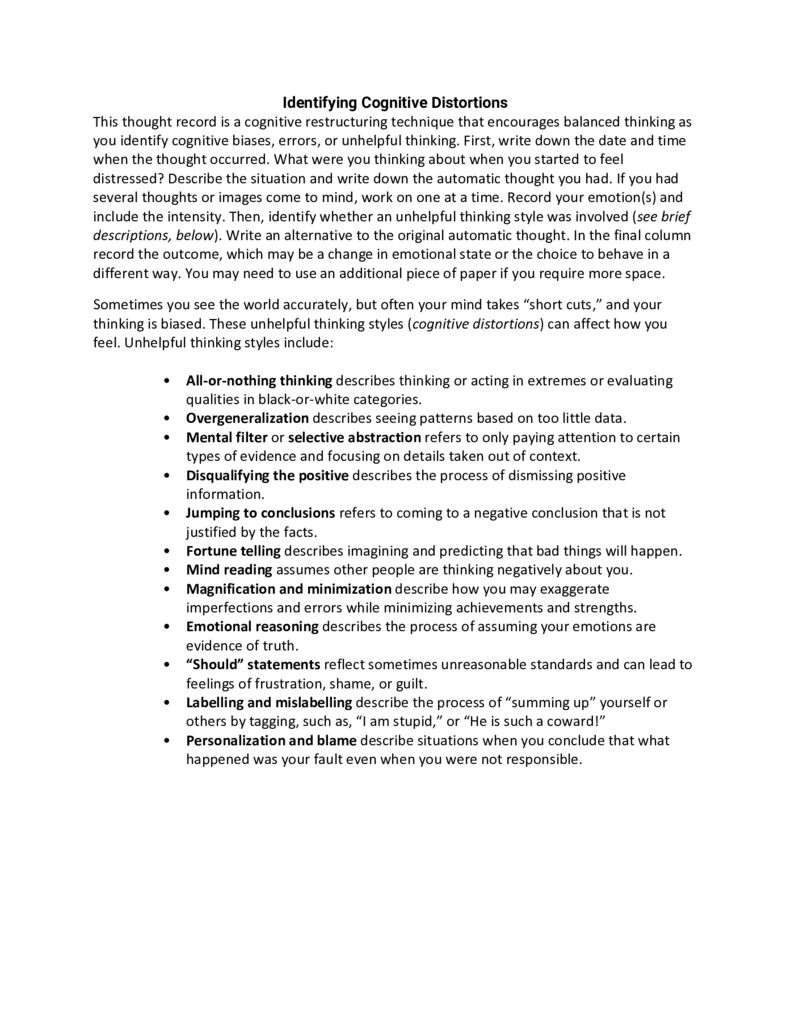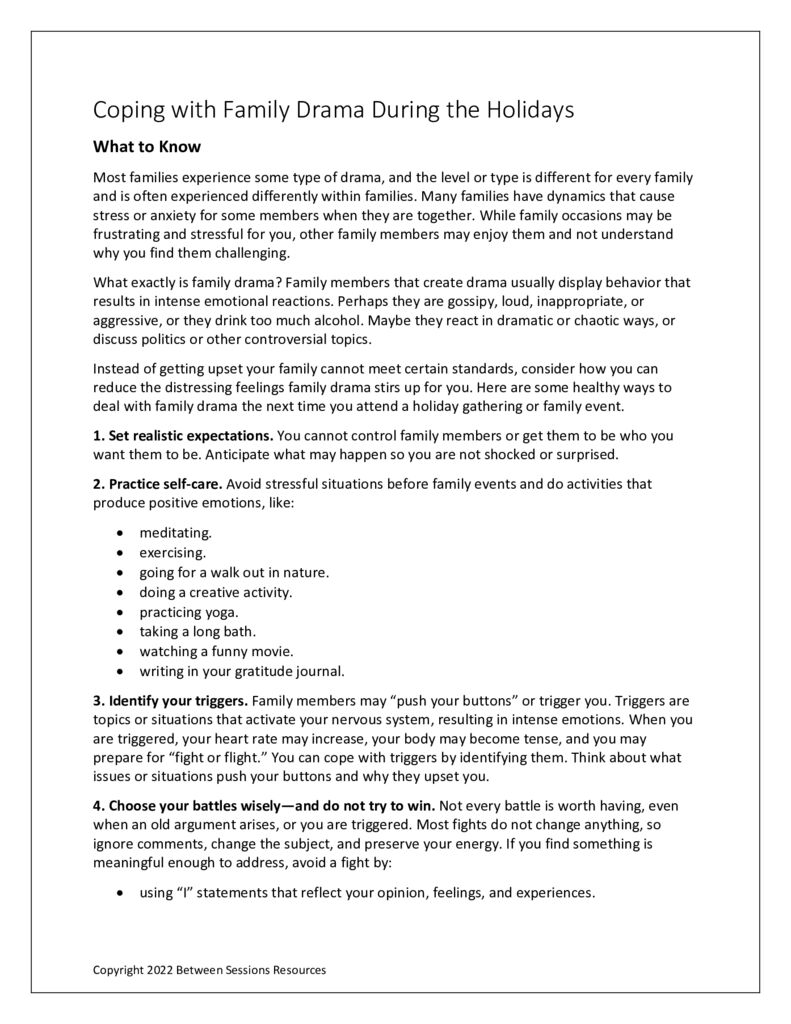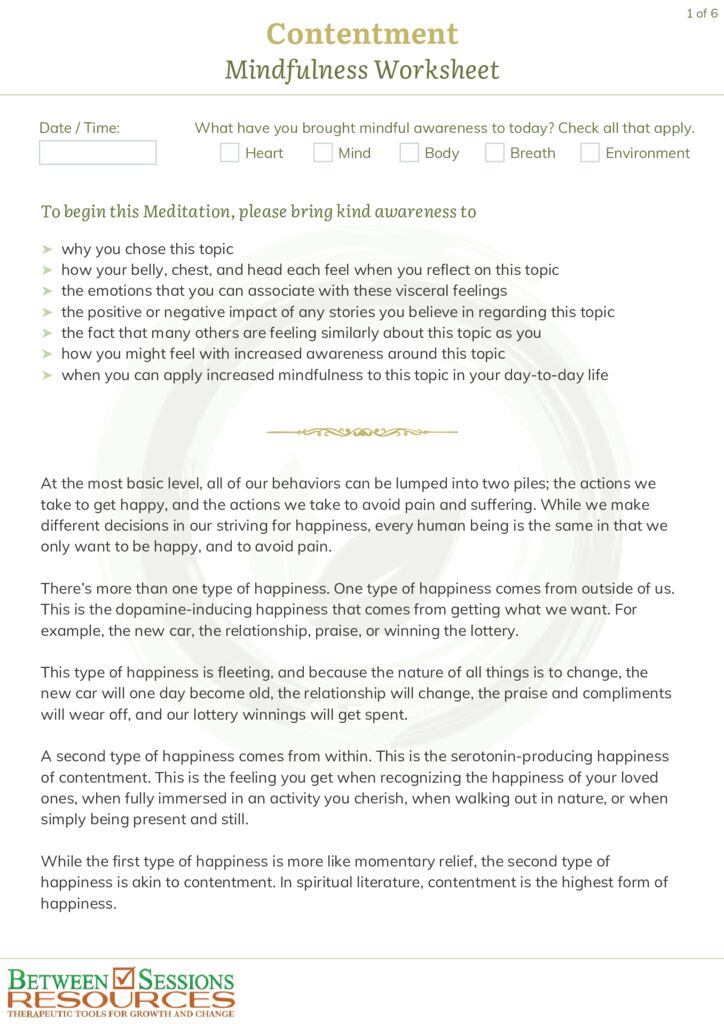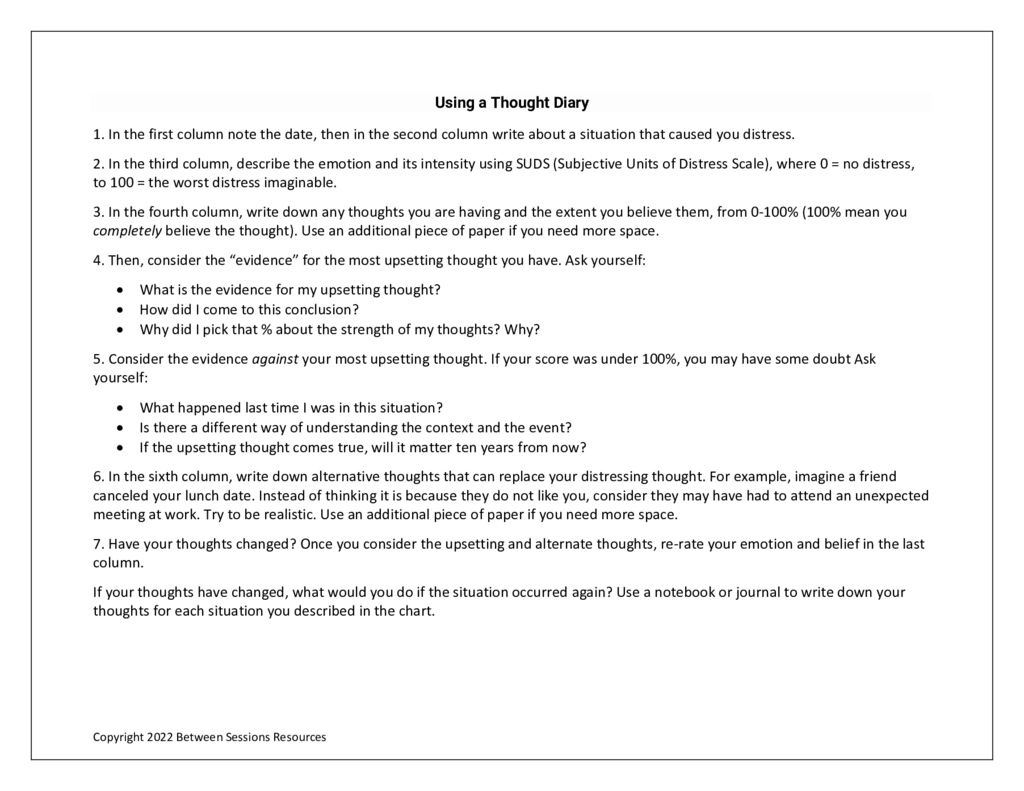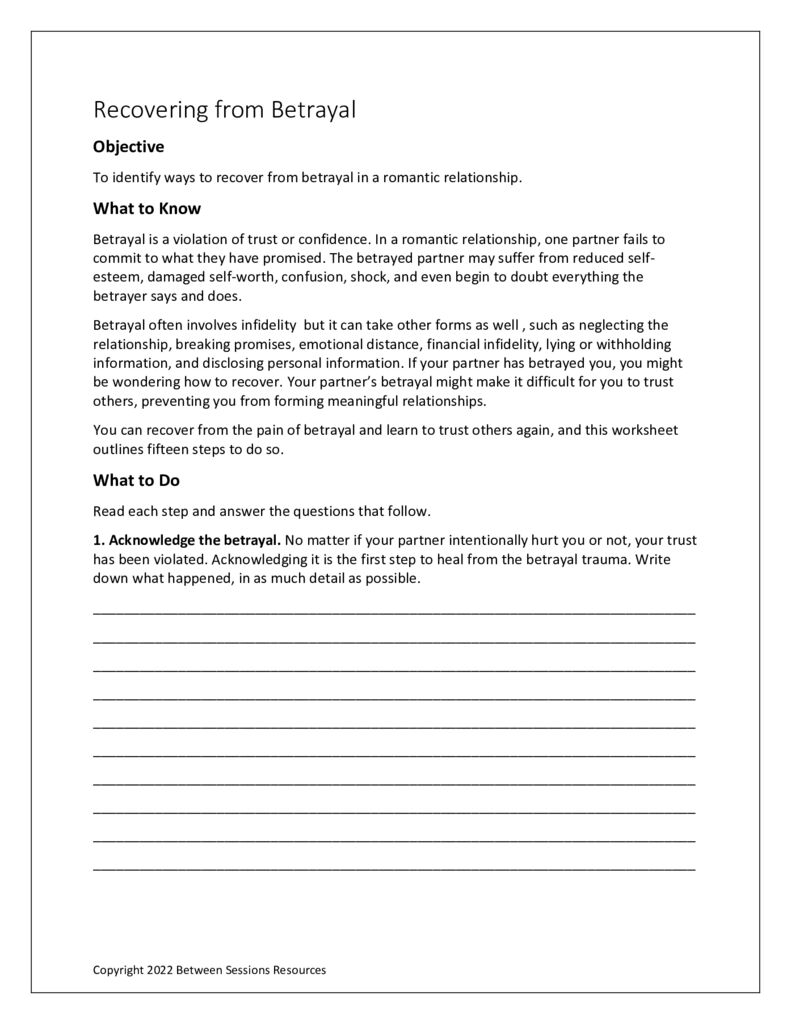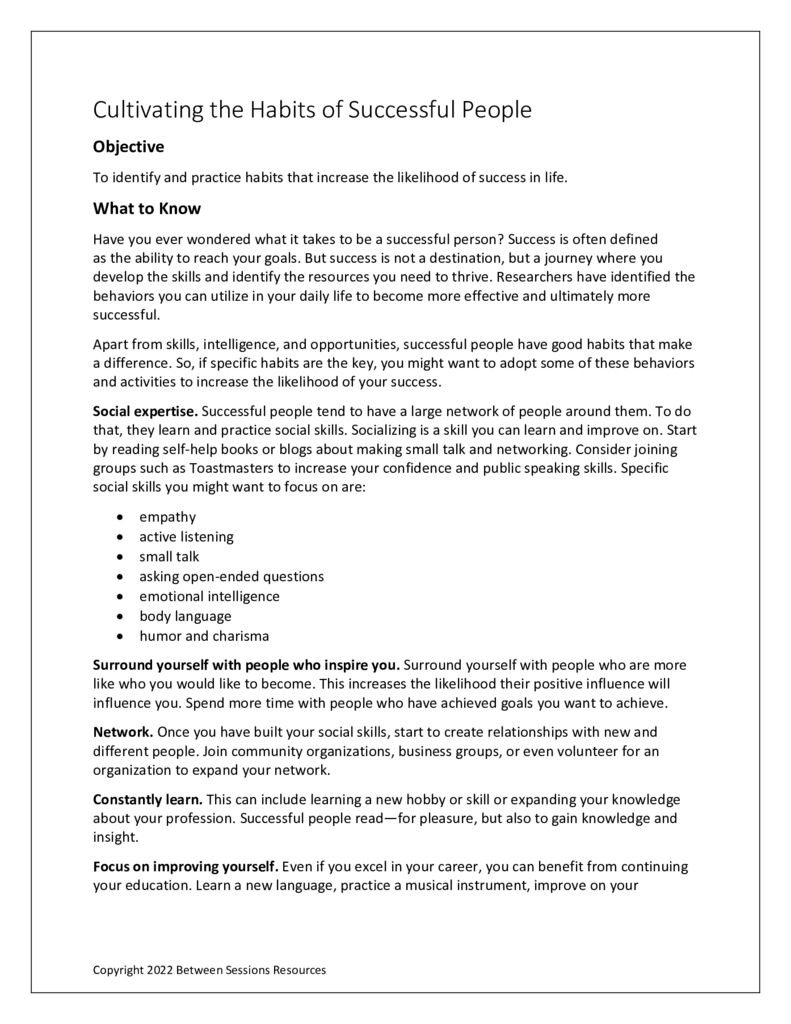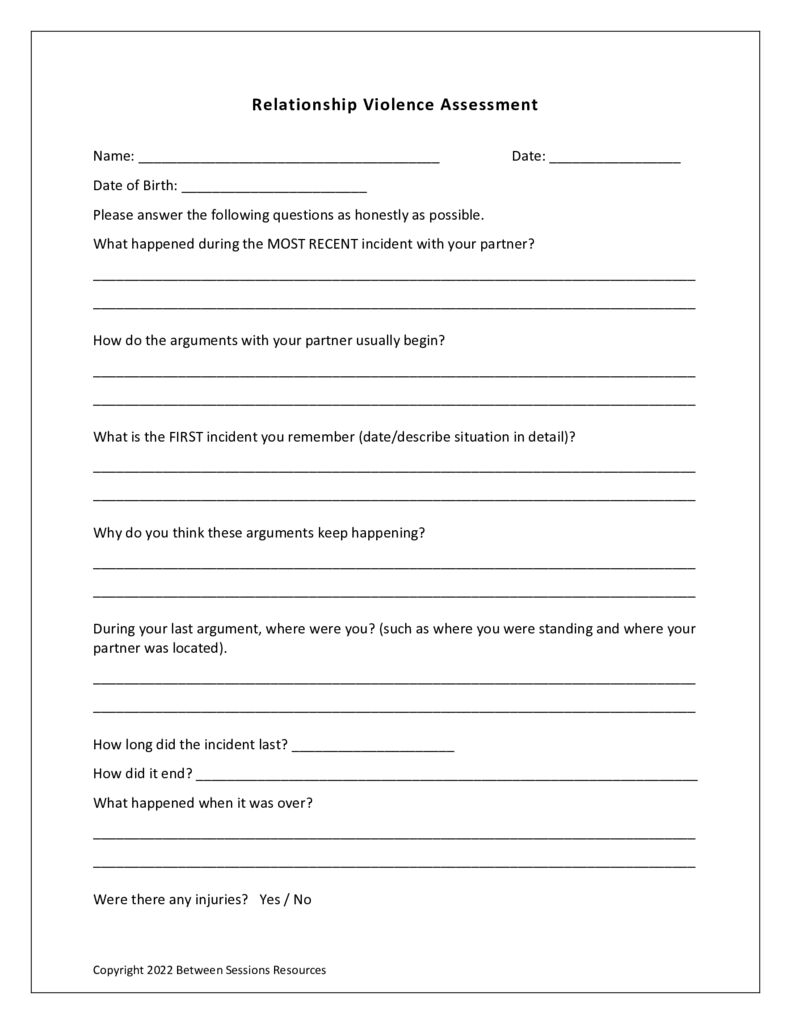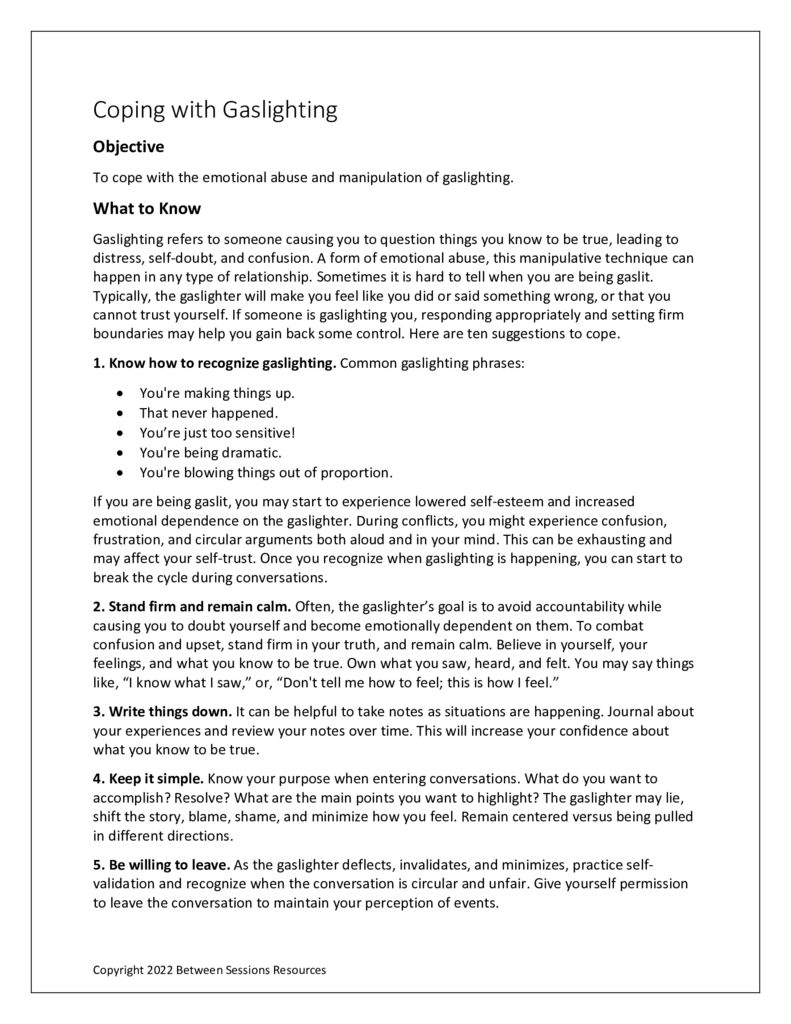Studies tell us that when professionals prescribe therapeutic homework, clients report significantly better outcomes. Our worksheets are derived from evidence-based therapies, and they are designed by experienced professionals. Use the navigation links on the left of this page to view tools in a specific category. Or use the search box at the top of this page to find the exact tool you are looking for.
To modify the tools, click the ‘Send to Client’ button by each tool to open the Psychology Forms Filler. You can then edit the tool as you see fit and either print it out or send it to a client to be filled out online. Click here for a tutorial on using the Psychology Forms Filler.
If you can’t find what you are looking for on this site, please let us know by
clicking here and our team of writers, graphic artists, and therapists will custom-design it for you.
This worksheet teaches clients the technique of cognitive restructuring. The different kinds of cognitive distortions are explained and then clients are asked to keep a chart where they identify their automatic thoughts and substitute more realistic alternative thoughts. (1222. CBT. cognitive restructuring thought changing)
This worksheet is designed to help people develop a daily habit of relaxation to reduce stress and improve their physical and mental health. The worksheet suggests various relaxation activities and includes a chart to help people keep track of them. (1222. relaxation response, stress reduction)
This worksheet is designed to give people a wide range of strategies to deal with family problems that typically occur during the holidays. Strategies include setting realistic expectations, self-care, identifying triggers, choosing to accept family members as they are, taking “stress breaks,” and more. (1122, family therapy, holidays, stress management, interpersonal conflict, interpersonal effectiveness)
This worksheet is designed to help people explore the meaning of contentment. (1122, mindfulness, happiness)
This 7-column form is designed to help people keep track of the situations and thoughts that cause them distress and create “rebuttals” to thoughts that are dysfunctional. The form is frequently used in CBT therapies for anxiety disorders and depression. (1122, anxiety, exposure therapy, CBT, dysfunctional thinking, emotional regulation)
This tracking tool helps your clients identify and track the triggers that precede their problem behaviors. The chart lets clients track up to 8 triggers for an entire month. (1122, anxiety, data recording, assessment, depression, addiction, emotional regulation)
This worksheet is designed to help people understand and get past the pain of betrayal in a relationship. Betrayal can come from infidelity, but also from breaking promises, lying, disclosing private and personal information, and more. The worksheet explains 15 steps to get past the betrayal, from deciding whether or not to stay in the relationship to practicing forgiveness. (1122, relationships, infidelity, betrayal, marriage counseling, family therapy)
This worksheet details the habits and skills common to successful people, such as social awareness, networking, a passion for learning and self-improvement, and so on. The worksheet includes a chart for people to keep track of their success-oriented activities and behaviors. (1122, work, success, motivation, achievement, fulfillment)
This form asks a series of questions to people who are experiencing relationship violence. The assessment goes into a great deal of detail about the specifics of the relationship and the potential for danger. (1022, domestic violence, spousal abuse)
This worksheet gives people 10 strategies to deal with gaslighting, a form of emotional abuse designed to cause confusion and self-doubt. A chart is included to help people evaluate the effectiveness of these techniques in dealing with these distressing relationships. (1022, marriage therapy, relationships)

